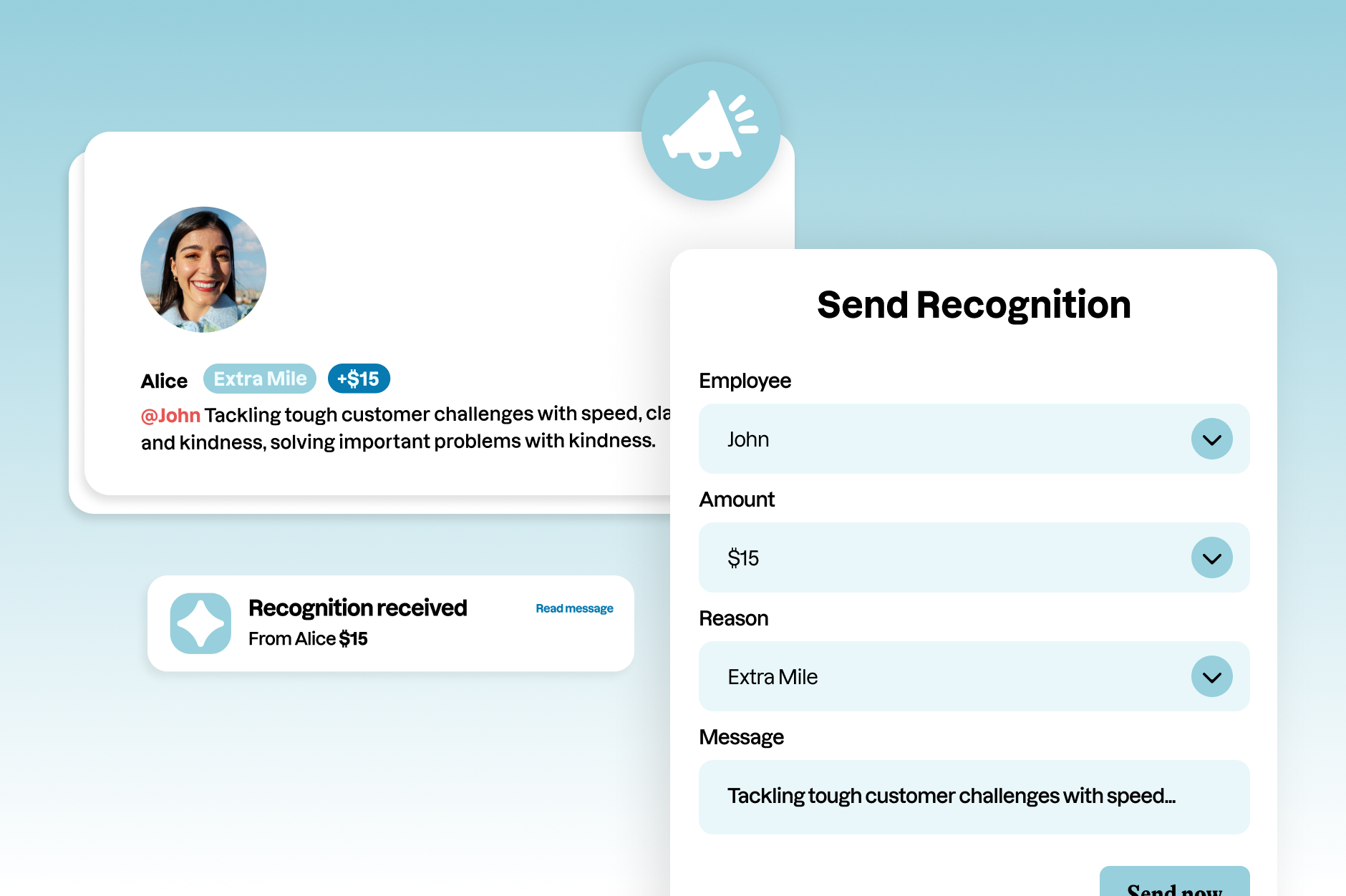Blogs
Delivering Benefits to Diverse and Distributed Teams: A Lesson In Psychology and Impact

Your workplace is diverse - and rightly so. Diverse teams are consistently linked with higher financial performance, improved social and environmental impact, better innovation, and enhanced decision-making, according to research by McKinsey. With diversity comes differing (and sometimes competing) employee priorities, varying cultural and lifestyle preferences, the challenges of different life stages personally and professionally, and a myriad of other differentiating factors - such as the one in ten working Australians with neurodiversity or disability considerations.
Add in the growing trend of distributed teams (between 37% and 87% of Australians and Kiwis continue to work from home for at least part of the week), where employees work remotely from various cities, states, or even countries, and the challenge becomes clear: how do you design a benefits package that meets the needs of all employees, regardless of where they live, what they value, or their unique life circumstances?
What is clear is that traditional one-size-fits-all benefits packages no longer suffice, leaving many benefits underutilised and employees feeling undervalued when a company’s offerings fail to align with an employee’s internal motivators and drivers.
The solution? Moving away from generic, checkbox benefits and adopting tailored solutions that resonate with employees, are easy and practical to use, and align with each person's diverse values and circumstances.
Benefits and Behaviour: The Key Connection
When thoughtfully designed and delivered, benefits can do more than attract new talent – they shape employee behaviour, reinforce organisational values, and drive engagement. Employees with access to meaningful benefits are more loyal, motivated and productive, shifting the influence of employee benefits from quiet, low-priority transactions to powerful tools that reinforce desired behaviours. Consider:

The Psychology of Employee Benefits
The heart of an effective benefits strategy lies in understanding the psychology behind employee motivation and decision-making. Studies show that 70% of human decision-making is emotional, not rational. This means that the benefits an organisation offers cannot just be practical or financially valuable. They must also be meaningful and relevant to employees’ unique lives, goals, and challenges.
Here are four psychology-based principles to consider when designing or refining your 2025 benefits strategy.
1. Benefit perception
How employees perceive your benefits plays a crucial role in their effectiveness. If employees feel that a benefit doesn’t meet their specific needs or is difficult to access, they are less likely to appreciate or use it, regardless of its monetary value. For example, offering contributions towards a robust health insurance plan is good in theory, but if employees feel it fails to cover their specific needs and priorities, or they are penalised by lengthy stand-down periods, they may perceive this benefit as inadequate, non-inclusive and inconsiderate.
On the other hand, a smaller, flexible wellness stipend could be more meaningful to an employee if they can use it for personalised health goals, like purchasing a standing desk for their home office or subscribing to a mental health app. Similarly, a generous professional development budget can fail to achieve its full value if employees feel restricted by overly specific guidelines, there is confusion about how the funds are accessed or spent, or if they perceive the approval process as burdensome.
2. Self-determination theory
The self-determination theory suggests that we have three basic needs that underpin motivation and therefore boost engagement, morale, and job satisfaction, and foster a deeper sense of trust and loyalty when applied in the workplace: autonomy, competence and relatedness.
- Autonomy means your employee feels they have choice and control over how they use their benefits, with the opposite being the feeling that they’re being controlled or restricted. Autonomy can be supported through flexible work arrangements or wellness stipends that can be used at the employee’s discretion in areas they choose due to the relevance to their lives and goals.
- Competence refers to the experience of mastery and feeling effective in work tasks. Competency can be nurtured through professional development funds or tuition support and enhanced with autonomy over which areas to develop.
- Relatedness, the need to feel connected and have a sense of belongingness, can be supported via wellness budgets, mental health support, and family-friendly initiatives. These offerings show employees that their personal and emotional well-being is valued, fostering a deeper sense of loyalty and strengthening the emotional connection to the organisation.
3. Loss aversion
Loss aversion is a cognitive bias where the pain of losing (in this case, having a current workplace benefit not be available at a prospective new role) is psychologically twice as powerful as the pleasure of gaining it. When you offer benefits that employees value, engage with and view as important and relevant to their personal needs, the aversion to the potential loss of these benefits can drive retention. Take allowances for the gym, recreational activities or wellness, where autonomy over where they are used means they feel meaningful and aligned with an employee’s priorities. This becomes not just a perk but an integral part of their employment experience, making them less likely to consider leaving, as doing so would feel like losing something valuable.
4. Recognition
Recognising employees is a powerful motivator, with 78% of employees working harder and feeling more driven when they feel that their efforts are being rewarded. The lack of recognition is equally as powerful of a deterrent, with 39% of respondents in a study by Globoforce wanting to quit their job due to feeling under-recognised and unappreciated at work. Recognising and appreciating employees, whether with a performance bonus, a gift stipend or even a simple thank you, helps boost their morale, productivity and engagement, and helps them feel valued, supporting their retention.
Your Benefits Offer An Insight Into Your Company’s Culture and Priorities
What you offer your employees speaks volumes about your company’s values. When prospective employees see that your benefits package is not only comprehensive but also customisable to their individual needs, they get a real sense of what it would be like to work for your organisation. Your benefits are a powerful way to show that you put meaningful actions behind the values you stand for. This helps foster trust, loyalty and a connection to the workplace – even before accepting a job offer.
Driving Motivation and Performance
At Extraordinary, we’ve reimagined how organisations deliver benefits by simplifying the process and making it easy for employees to use their benefits in ways that are meaningful to them. Our platform allows companies to distribute customised allowances, bonuses, gifts, and all other non-payroll payments through a Mastercard-backed payment card, which can be used for a variety of purposes: from wellness and personal development to travel and lifestyle.
Our approach to benefits is rooted in flexibility, transparency, and equity. Here’s how it works:
- Choice and flexibility: A diverse and distributed workforce wants benefits that reflect their unique priorities - and locations. Extraordinary allows them to use their employee cards for a range of self-directed purchases, whether for wellbeing, travel, professional development or bonuses.
- Clear Goals and tangible rewards: With Extraordinary’s platform, employers can link specific performance goals to rewards, ensuring that employees understand how to achieve them and feel motivated to do so.
- Equity and transparency: Instead of offering a one-size-fits-all solution, Extraordinary allows employers to configure budgets and categories based on employee needs, ensuring fairness and equity in benefit distribution.
- Enhancing employer branding: Offering meaningful, flexible benefits enhances your employee value proposition (EVP), positioning your company as a forward-thinking, people-first employer. This helps with retention, attracting top talent, and setting you apart in a competitive market.
- Streamlined efficiency: Traditional benefits can be bogged down by complicated processes and paperwork. With Extraordinary’s platform, employees have real-time access to their benefits, and employers save time with simplified reconciliation and reporting.
By integrating the principles of psychology into benefits design, companies can boost engagement, loyalty, and productivity, fostering a deeper connection between employees and the organisation. Ultimately, embracing a more customised approach to employee benefits isn't just a smart strategy; it's a way to build a more engaged, loyal, and high-performing team.
If you've like to learn more about Extraordinary and how our solution can benefit you business, you can connect with a member of the team here.
https://www.metlife.com/workforce-insights/employee-benefit-trends/
https://www.deloittedigital.com/us/en/insights/perspective/workforce-experience-by-design.html
https://www.mercer.com/en-my/insights/total-rewards/employee-benefits-strategy/health-on-demand-2023-survey-report/
Extra Resources








